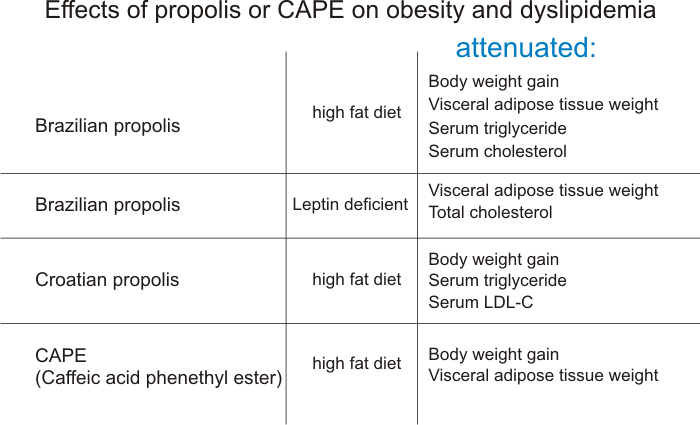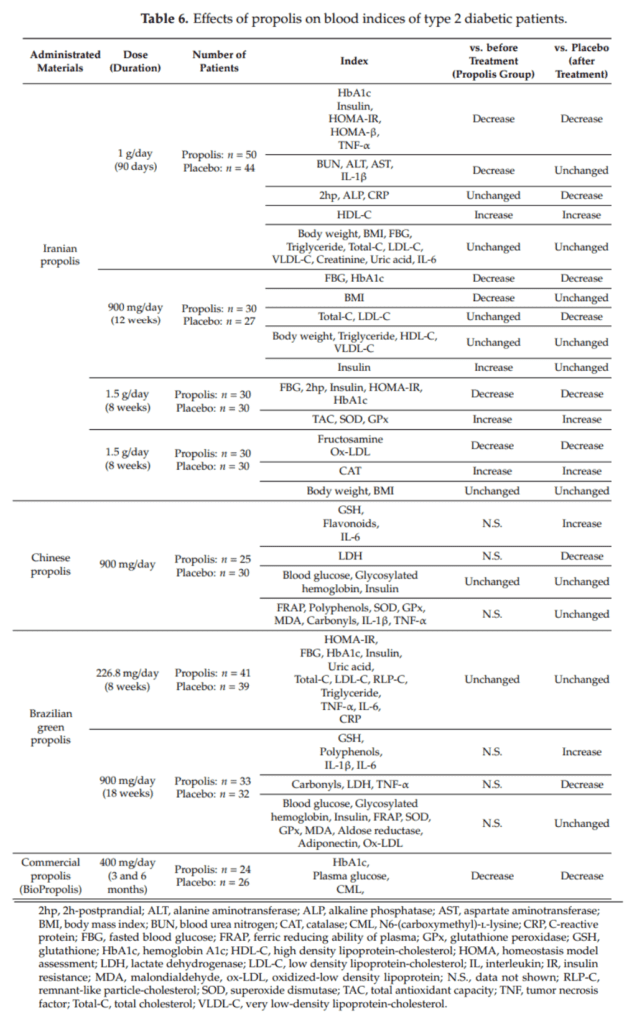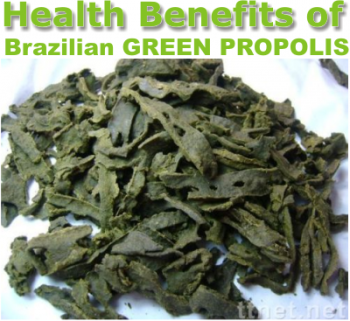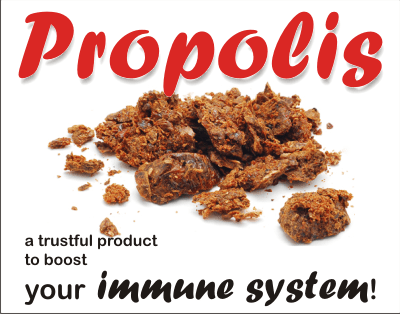Is propolis good for diabetes? Definitely yes, for both types.
Propolis is a hive product made from a mixture of honeybee saliva, extracts from seeds and leaves, and exudates of plant flora.
Scientists have isolated more than 500 chemical compounds so far. Its composition depends on its geographical origin, but generally, propolis can be classified into two types:
1. Poplar propolis, which is abundant in flavonoids – mainly produced in Europe, North America, and the
non-tropical regions of Asia;
2. Baccharis propolis, which is abundant in cinnamic acid derivatives – produced in Brazil. (more used in studies.)
Propolis has a real therapeutic effect, as proven by numerous studies and clinical trials on infectious diseases, inflammation, cancer and metabolic disorders (such as diabetes). Scientific verification has demonstrated that propolis and its chemical components. (Read more on propolis.)
Diabetes and teeth
Propolis improves glycemic control and periodontal status
• The study from 2016, “Propolis improves Periodontal Status and Glycemic Control in Patients With Type 2 Diabetes Mellitus and Chronic Periodontitis: A Randomized Clinical Trial.” conducted by El-Sharkawy HM, showed that 400 mg of propolis daily brought good changes in the patient’s health:
– significantly reduced levels ofhemoglobin (Hb) A1c (primary outcome), fasting plasma glucose, and serum N€-(carboxymethyl) lysine (CML);
-improved periodontal parameters (secondary outcomes)
The propolis group showed significantly greater probing depth reduction and clinical attachment level gain than the control group after 3 and 6 months.
The results showed that 400mg daily for 6 months improved periodontal therapy outcomes in people with type 2 diabetes mellitus and chronic periodontitis and made it a potentially viable adjunct to scaling and root planning on glycemic control.
Diabetes and kidney
• The 2016 study Effects of ethanol extract of propolis on histopathological changes and anti-oxidant defense of kidney in a rat model for type 1 diabetes mellitus.” conducted by Sameni HR and his colleagues, evaluated the anti-oxidant effects of ethanolic extracts of propolis on kidneys in diabetes mellitus rats. Oxidative stress has a key role in the pathogenesis of diabetes.
Ethanolic extracts of Iranian propolis were used in this study, 100 mg/kg in one group and 200 mg/kg in a second group, for 6 weeks. Measurements included: serum concentration of malondialdehyde, superoxide dismutase and glutathione peroxidase.
At the end of the 6 weeks, the results showed that propolis:
– significantly inhibited bodyweight loss in diabetes mellitus rats.
– significantly reduced serum glucose levels and kidney weight in diabetes mellitus rats (P < 0.001)
– significantly reduced the malondialdehyde content, and
– increased the activity of superoxide dismutase and glutathione peroxidase (P < 0.001) along with the total anti-oxidant activity in the kidney tissue of diabetes mellitus rats.
In conclusion, treatment of diabetes mellitus rats with propolis extract significantly reduced the glomerular basement membrane thickness and glomerular area. The explanation was believed to be in the power of propolis to reduce blood glucose levels.
Diabetes and obesity
Plenty of studies have examined how propolis influences obesity and adipose tissue. Early reports indicated that the effects of propolis were different between adipose tissues. In general, visceral adipose tissue is more sensitive to propolis than subcutaneous adipose tissue.
• The 2019 review “Effects of Propolis Extract and Propolis-Derived Compounds on Obesity and Diabetes: Knowledge from Cellular and Animal Models.” conducted by Kitamura H from Japan, showed that propolis extracts have therapeutic effects on obesity by controlling adipogenesis, adipokine secretion, food intake, and energy expenditure.
· Oral administration of Croatian propolis (ethanol extract, 50 mg/kg/day) decreased body weight gain of C57BL/6N mice after 10–20 days of treatment (study: Effect of propolis on diet-induced hyperlipidemia and atherogenic indices in mice, Oršoli´c, N, 2019)
· 25 mg/kg propolis ethanol extract attenuated body-weight gain in pre-existing obese mice [study: Propolis prevents diet-induced hyperlipidemia and mitigates weight gain in diet-induced obesity in mice, Koya-Miyata, S et al., 2009)
· CAPE (Caffeic acid phenethyl ester) proved to be one of the compounds responsible for the anti-obesity effects of propolis. CAPE, a hydroxycinnamic acid in propolis, significantly decreased body weight gain in HFD-fed C57BL/6N mice in a dose-dependent manner. CAPE decreased epididymal adipose tissue mass without affecting kidney and liver weights [study: Caffeic acid phenethyl ester, a major component of propolis, suppresses high fat diet-induced obesity through inhibiting adipogenesis at the mitotic clonal expansion stage, Shin, S.H et al., 2014]
Diabetes and wounds
It is known that diabetes worsens wounds. When used on them, propolis will:
– mitigate excess activation of neutrophils to avoid tissue damage;
– stimulate macrophage infiltration into the lesion to remodel the tissues;
– activate TGF-β signaling in fibroblasts, resulting in potentiation of collagen synthesis.
Moreover, accumulation of VEGF (vascular endothelial cell growth factor) and FGF2 (fibroblast growth factor) might contribute to angiogenesis. 
Since propolis is a natural antimicrobial agent, it will help protect against microbial infection. As a result, propolis “has potential to accelerate wound healing in diabetic animal models”(study by McLennan, S.V et al., 2008)
• the 2019 study “Propolis as an Adjuvant in the Healing of Human Diabetic Foot Wounds Receiving Care in the Diagnostic and Treatment Centre from the Regional Hospital of Talca.” conducted by Mujica V, evaluated the effect of propolis as an adjuvant in the healing of human diabetic foot ulcers, in a randomized placebo-controlled study of subjects receiving care in the Diagnostic and Treatment Centre from the Regional Hospital of Talca, Chile.
The result was that propolis promoted a reduction of the wound’s area by an average of 4 cm2, related to an increase in the connective tissue deposit compared to the control. Also, propolis increased the glutathione (GSH) and GSH/glutathione disulfide (GSSG) ratio (p < 0.02), depleted tumor necrosis factor- (TNF-) α, and increased interleukin- (IL-) 10 levels. Topical propolis did not modify the biochemical parameters in the serum of the studied subjects.
The topical use of propolis turned out to be an interesting therapeutic strategy as an adjuvant in the care of diabetes foot wounds due to its ability to improve and promote healing based on its anti-inflammatory and antioxidant profile.
Diabetes and bowels
A 2019 study, “Propolis modulates the gut microbiota and improves the intestinal mucosal barrier function in diabetic rats” conducted by Meilan Xue and colleagues from the Department of Biochemistry and Molecular Biology, Qingdao University of Medicine, China, showed that propolis treatment could benefit the communities of gut microbiota in diabetic rats and repair intestinal mucosal damage.
The rats were administered 80, 160, or 240 mg/kg·bw/day propolis by gavage, for 4 weeks. 240 mg/kg propolis treatment had the most significant effect on lowering blood glucose and improving intestinal mucosal barrier function.
The study identified differences in the microbial community structure in diabetic rats from that in normal rats.
The treatment with propolis was effective in reducing fasting plasma glucose and enhancing insulin sensitivity. Compared to the model group, propolis could improve intestinal microecology disorders, increase the metabolic products of the gut microbiota, such as short-chain fatty acids, and repair intestinal mucosal damage in diabetic rats, which may be one of the mechanisms through which propolis improves hyperglycemia.
Many other studies showed the same good benefits of propolis over diabetic gut microbiota.
• A significant increase in gut microbial diversity after 21 days of 0.3% propolis supplementation in rats fed a Western diet (K. Wang et al., 2017)
• Green propolis modulates gut microbiota, reduces endotoxemia and TLR4 pathway expression in mice fed a high-fat diet (A.R. Roquetto et al., 2015).
Where can we find propolis?
Try your locals first.
Then specialized health stores in your town or online ones. Amazon has both types: Poplar Propolis and Baccharis Propolis, some cheap, some not that cheap.
For children, give propolis in tablet form or water extracts (not glycerite).
Adults can take alcohol extracts as well.
Here are some examples: Now Foods Propolis 1500 mg 100 capsules (Pack of 3); or extract
Propolis Tincture, Raw and Unprocessed Liquid Extract (Brand Name: HerbalTerra, Proudly Made in USA) 4 fl.oz (120 ml). (#ad)
Also read:
Propolis protects kidneys and reduces proteinuria;
Brazilian Green Propolis health benefits
Other references:
Effects of Propolis Extract and Propolis-Derived Compounds on Obesity and Diabetes: Knowledge from Cellular and Animal Models,. Kitamura H, 2019
Picture source: pixabay.com





